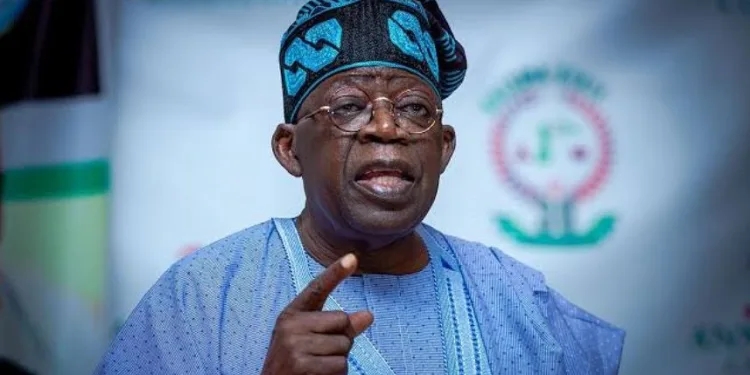Over the years, Nigeria’s budget deficit has been widening without letup. This has accelerated, at least in naira terms, over the last 7 years.
Nigeria’s fiscal deficit for 2021, for example, amounted to about N6.45 trillion. The fiscal deficit for 2022 exceeded N6.26 trillion. And more than N11 trillion constitutes Nigeria’s budget deficit for 2023.
Many economists, organizations, and multilateral institutions such as the Breton Woods and the African Development Bank (AFDB), point to Nigeria’s fuel subsidy program as a major cause of the country’s perennial fiscal deficit. Politicians have long touted subsidy removal as the solution to Nigeria’s persistent fiscal imbalance
For more than 30 years and counting, virtually all federal government regimes in Nigeria have at some time or another had a spat with labour unions over fuel subsidy removal.
There can be no gainsaying the fact that the cost of fuel subsidies has always pointed northward, even after the removal of subsidies on some petroleum products, hence, the outcry for its removal has grown ever louder.
Subsidy removal is not the solution
But it is noteworthy that total subsidy removal will not be the answer to Nigeria’s fiscal problems. For instance, in 2022, Nigeria’s budget deficit was N6.26 trillion, whereas it spent N4.39 trillion on fuel subsidies. For this year, whereas Nigeria will borrow more than N11 trillion; N3.36 trillion has been earmarked for fuel subsidy. So, assuming a complete subsidy removal in 2023, Nigeria would still have a deficit of N8 trillion.
The implication is that even with the removal of fuel subsidy, Nigeria’s budget deficit would still be high, and there would be the constant need to borrow more to fund the deficit, including, at times, to meet up with recurrent expenditure.
Problems with fiscal deficit
A fiscal deficit becomes bad when it is being used to sustain recurrent expenses rather than infrastructure development. The case of Nigeria is worrisome as the fiscal deficit has been used to sustain recurrent expenditures.
The government’s borrowing to finance fiscal deficit may crowd out private investment, aggravate interest rates, and reduce access to investment funds in the ecosystem. The difficulties of accessing investment credit due to the crowding effects of government borrowing have the potential of stifling production, which may lead to high unemployment, inflation, and the closing of some companies.
There is imperative for the incoming administration of Bola Tinubu to taper Nigeria’s deficit in the long term. So, how does Nigeria bring her fiscal imbalance under reasonable control?
What Tinubu must do
The Tinubu administration will need to reduce the cost of governance. At 7%, Nigeria’s revenue to GDP is among the five lowest in the world, yet the cost of governance over the years has been very high and unsustainable as recurrent expenditure continues to significantly exceed capital expenditure.
A former governor of the Central Bank of Nigeria, Lamido Sanusi, said Nigeria runs one of the most expensive governments in the world. As if to confirm that, the Revenue Mobilisation Allocation and Fiscal Commission (RMAFC) has been at the forefront of calls for a reduction in the day-to-day cost of government expenditure.
To save cost, the federal government, and by extension, state governments should exercise their power to merge the ministries, departments, and agencies performing similar and overlapping functions to reduce the cost of governance.
Political offices should be made less attractive. The cost of running political offices in Nigeria is also among the highest in the world, considering the low revenue generation base of the government.
There is a need for public-private participation in infrastructural development to make the country more attractive to both domestic and foreign investors. Adequate infrastructure has the full potential of promoting investment, employment, output, income, and government tax revenue. Public-private partnerships would also be veritable investment outlets, with the potential to woo investors.
The Tinubu government must strive to reduce corruption. The Nigerian budgeting system is characterised by fraud, with zero-base budgeting yet to be adopted, after much touting by the Buhari administration at its dawn.
Grow the economy
Recently, the chief economist of PricewaterhouseCoopers (PWC), Dr Andrew Nevin, said Nigeria neither has a revenue problem, nor a debt problem, but a growth problem.
Nevins said that he disagrees with Nigeria’s minister of finance, who has on many occasions said “Nigeria doesn’t have a debt problem, but revenue problem.”
He said from the trajectory where economic growth is not more than population growth the country is going to come to a situation where GDP per capita is going to fall, and that would induce a debt crisis, probably where the country is right now.
He said if Nigeria were at 10% growth a year, the country could have tax revenues growing at 15% a year, and the system would work; but right now it’s not working. “But we continue to say it’s a growing problem; people don’t want to invest in this country because we’re not growing. So I think we’re in a crisis right now but for the next government it will take policies to fix them.”
















If it was to P.O then I’ll understand this suggestion.. but since it’s Tinubu i doubt this would work because i don’t think he’s for the people, but for himself, family and cohorts
He does not necessarily need to do any thing. because the more he tries to do, the worse things become for us.
all policy and order have not been in our favour but for themselves.
Leadership is not by wish but a discipline.